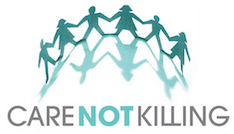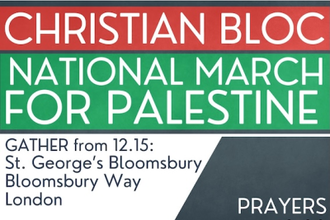Canada: Quebec expands euthanasia law

Source: Care Not Killing
On 7 June, members of the National Assembly voted to expand Quebec's 2014 MAiD (Medical Aid in Dying) law, which preceded the federal legislation and which was similarly affected by the 2019 court ruling suppressing the "reasonably foreseeable death requirement."
Bill 11 states: "The bill allows persons suffering from a serious and incurable illness leading to incapacity to… make an advance request for medical aid in dying so that they can receive such aid once they have become incapable."
"The bill makes other adjustments to the Act respecting end-of-life care. In particular, specialized nurse practitioners may administer continuous palliative sedation and medical aid in dying, and palliative care hospices may not exclude medical aid in dying from the care they offer."
Quebec is not the first government to permit advance decisions: the Netherlands permits euthanasia for patients on the basis of dementia (215 deaths in 2021). The practice drew international attention when a Dutch woman with dementia was restrained by her family to allow a doctor to euthanise her in line with an advance directive. When the doctor and the family sought to conduct the euthanasia procedure, the patient resisted and said no three times. The doctor put a sedative in the patient's coffee and she was held down by her son-in-law whilst the doctor administered the lethal drugs to end her life. At a subsequent trial, the doctor was acquitted and later the Supreme Court of the Netherlands confirmed that doctors acting in this way is compatible with the Dutch euthanasia law. The courts ruled that the doctor "did not have to verify the current desire to die."
Quebec's Bill 11 says of advanced request MAiD: "Any refusal to receive medical aid in dying expressed by the patient must be respected and it is prohibited to disregard it in any manner… [but] a clinical manifestation resulting from the patient's medical state does not constitute a refusal to receive medical aid in dying."
If the "competent professional" decides that a patient's refusal is a "clinical manifestation" of dementia, not unlike the Dutch practitioner…?
Regarding the reference to hospices, the text of the 2014 Act -
"Palliative care hospices determine the end-of-life care provided in their premises."
"Every palliative care hospice must inform persons of the end-of-life care it offers before admitting them."
'is amended [through Bill 11] by adding the following sentence at the end of the first paragraph: "However, they may not exclude medical aid in dying from the care they offer."'
The World Medical Association is clear that doctors should not be required to participate in euthanasia and assisted suicide deaths and "nor should any physician be obliged to make referral decisions to this end." All proposals brought forward pay lip service to rights of conscience, but demands are invariably placed upon healthcare professionals (including doctors, nurses and pharmacists.)
Belgium passed a new law in 2020, prohibiting bans on euthanasia in institutional care settings and forcing doctors with conscientious objections to make "effective referrals" (to doctors willing to process E&AS requests). Canada also requires effective referrals from objecting physicians, and at least one hospice in Canada has lost funding owing to its unwillingness to provide euthanasia deaths on its premises, while a New Zealand judge has ruled that health authorities would be within their rights to consider willingness to permit euthanasia and assisted suicide when reviewing funding for hospices.
During consideration of the Falconer Bill in 2014, Archbishop of Canterbury Justin Welby wrote: "What sort of society would we be creating if we were to allow this sword of Damocles to hang over the head of every vulnerable, terminally ill person in the country?"
The reality of this challenge is keenly felt when we consider that patients in Quebec who would take comfort in knowing that MAiD is not offered in the hospice of their choice, no longer can.
LINKS
MAiD Law: www.legisquebec.gouv.qc.ca/en/document/cs/s-32.0001
Canada: yes to minors, mental illnesses on hold: www.carenotkilling.org.uk/articles/canada-yes-to-minors-mental-illnesses-on-hold/
Care Not Killing: www.carenotkilling.org.uk/


















